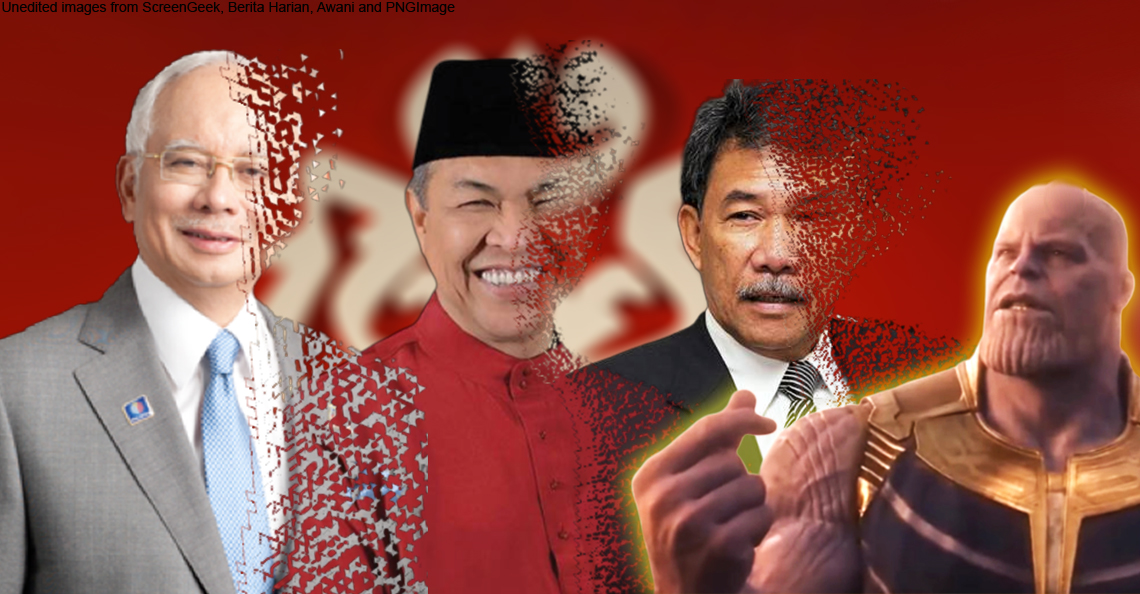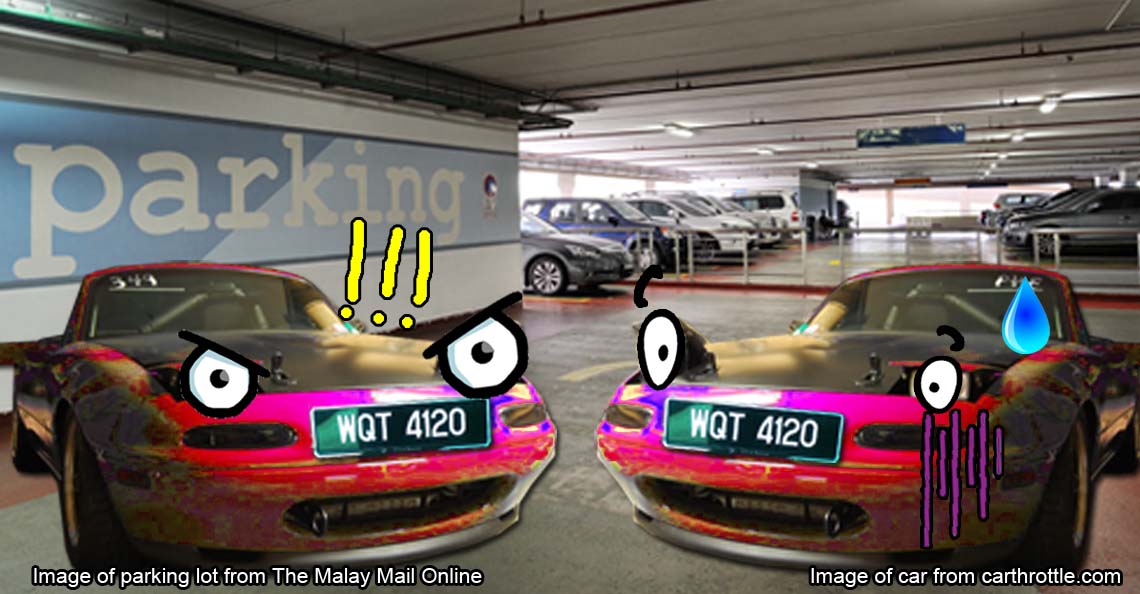6 things Pakatan Harapan is doing to curb corruption besides charging Najib
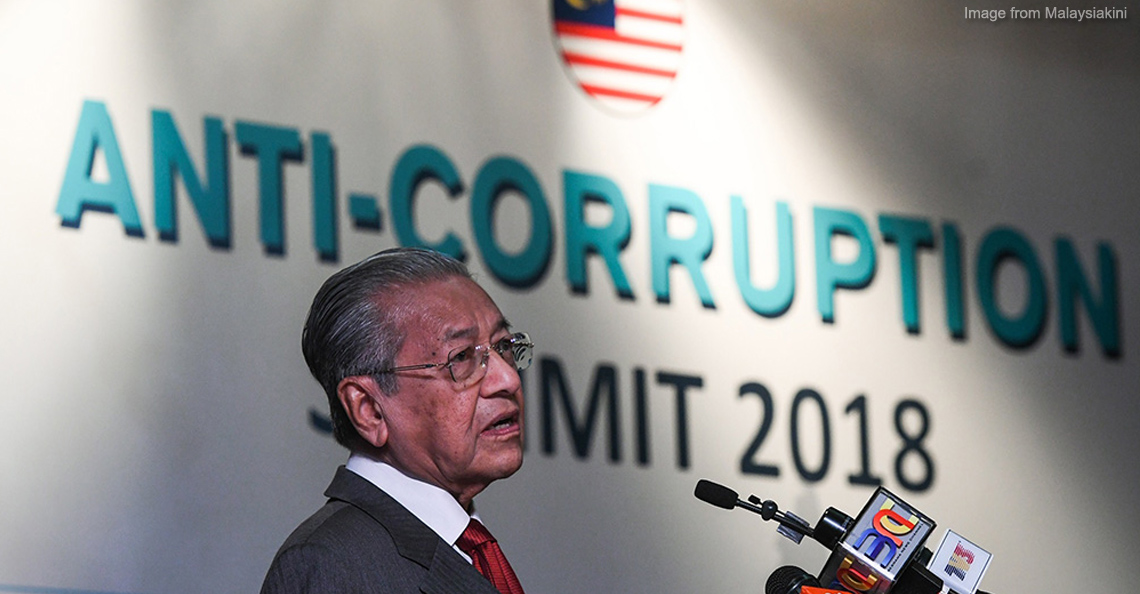
- 2.3KShares
- Facebook2.2K
- Twitter7
- LinkedIn8
- Email15
- WhatsApp37
By May 9, the Harapan govt would be ruling for a year. And before the party took over, Malaysia was known for many things.
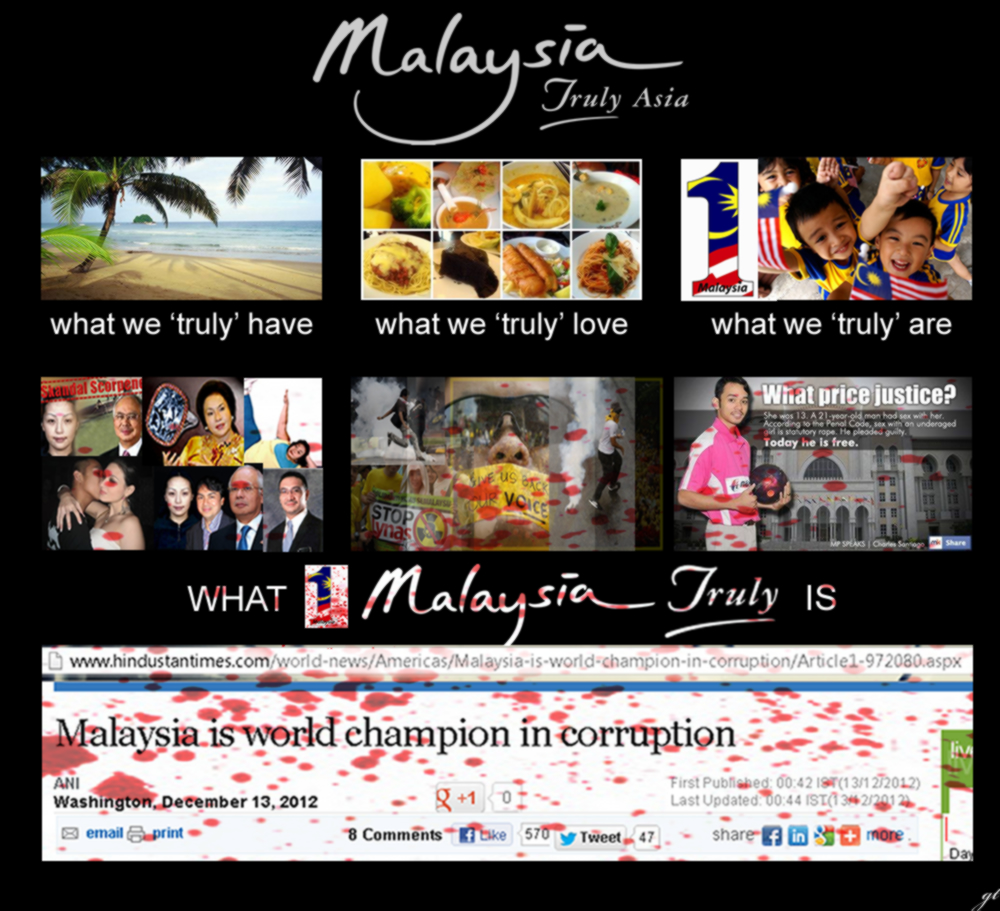
These past few years, Malaysia has been associated with corruption. Yea, we bet most of you are already familiar with what our former Prime Minister, Datuk Seri Najib Razak, has been charged with. In addition, there have been other cases of corruption that allegedly involves retired soldiers, Penang underground tunnel or even funds under the Human Resources Ministry.
Now since Harapan took over, not many have been that impressed with their performance and failure to keep up with their promises. However, that’s not to say that they’ve completely ignored their job, especially when dealing with corruption. For a start….
1. MACC might ramp up the punishment for corruption… including caning
So MACC’s Chief Commissioner, Datuk Seri Mohd Shukri Abdull (that’s not a typo really got two L) was actually only considering caning as a punishment for those who are involved with corruption. So, in a way, this actually hasn’t been implemented by MACC la. #ihatecilisos
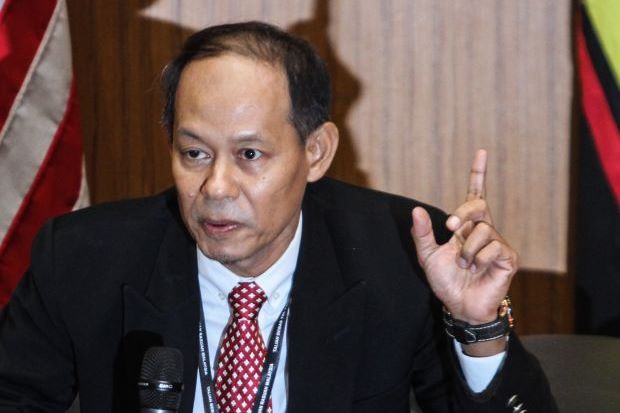
But Mohd Shukri was able to come up with this idea in the first place cos ever since Harapan took over Putrajaya, the MACC has more power over itself than ever before, as it’s been turned into an independent body. The statutory, which was initially under the Prime Minister’s Department (PMD), now reports to the Parliament.
And ever since MACC became independent, the govt has allocated RM286.8 million MACC in Budget 2019, which is an 18.5% increase from 2018’s Budget. In fact, govt has allowed MACC to hire more personnel to ensure it has enough resources and manpower to fight corruption.
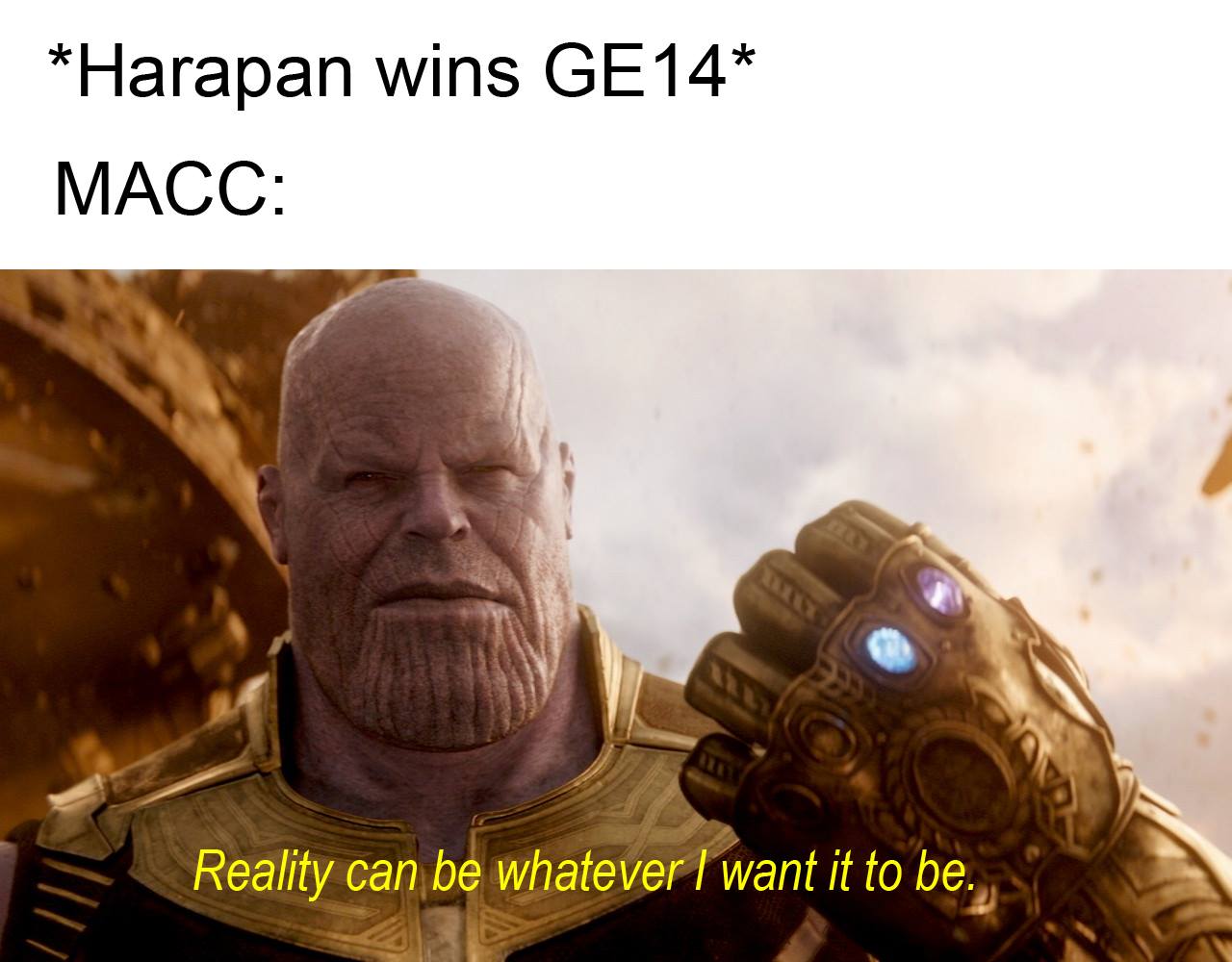
In addition, MACC’s number of arrests has increased from 879 in 2017 to 894 in 2018. And the number is increasing as we speak since the latest arrest involved 42 JPJ officers.
Although the number of arrests in 2018 is not really the highest (the highest number of MACC’s arrest was in 2016 with 939 people), Mohd Shukri said that its number of arrests in 2018 was pretty historic as prominent people were detained and prosecuted. Heck, 1MDB is the largest case that MACC has investigated. We’ve written about MACC’s power struggle in relation to 1MDB and you can read more here.
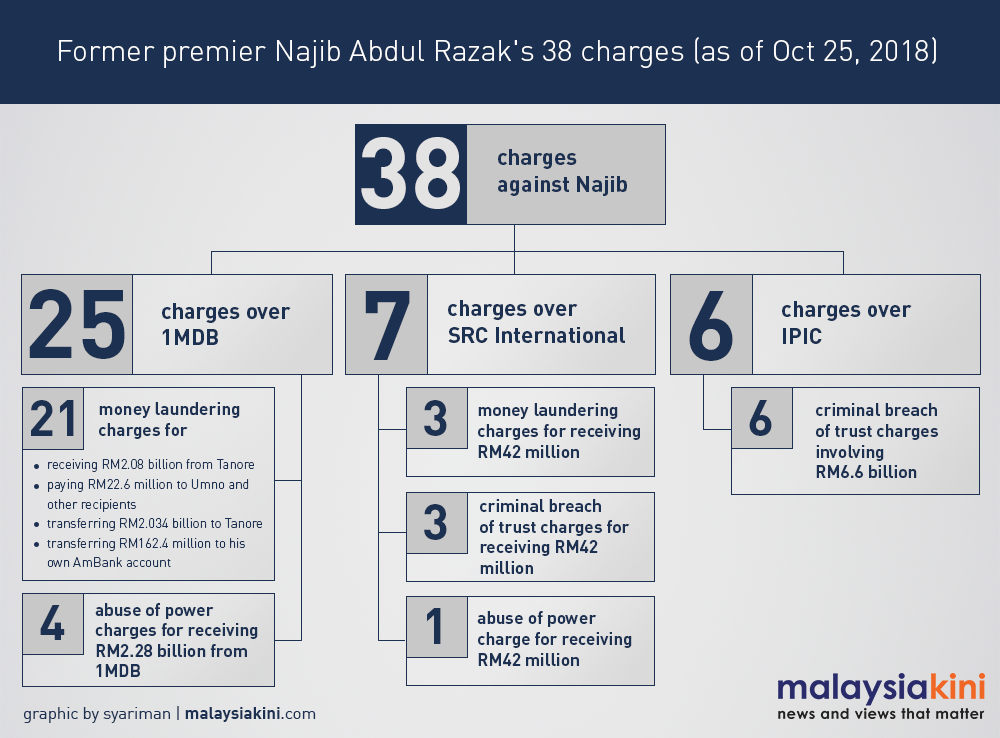
Not only that, MACC has also managed to get 1,356 agencies and private companies to sign a Corruption-Free Pledge. This is probably in line with the recent amendment in the MACC Act 2009 where every entity registered under the Companies Commission of Malaysia has to take its own initiative to fight corruption. But we’re unsure if this kinda move would sustain in the long run. :/
Besides MACC…
2. Over 90 govt agencies have been abolished, moved and turned into independent bodies
Initially, there were over 90 govt agencies under the Prime Minister’s Department (PMD). Aside from MACC, 8 other agencies have been turned into independent bodies such as the Election Commission and National Audit Department. In fact, the Parliament, which was previously under the PMD, is an independent entity now. The other 40 agencies under PMD were moved to various other ministries.
A few other agencies, however, have been abolished altogether. This includes 10 govt agencies including 19 offices and task forces under the Prime Minister’s Office (PMO) like the Land Public Transport Commission (SPAD) and the National Professors Council. And just in case you didn’t realise, the PMO is under the PMD la yeah. We’ve written about the effect of abolishing these agencies before la so if you wan you can read more here.
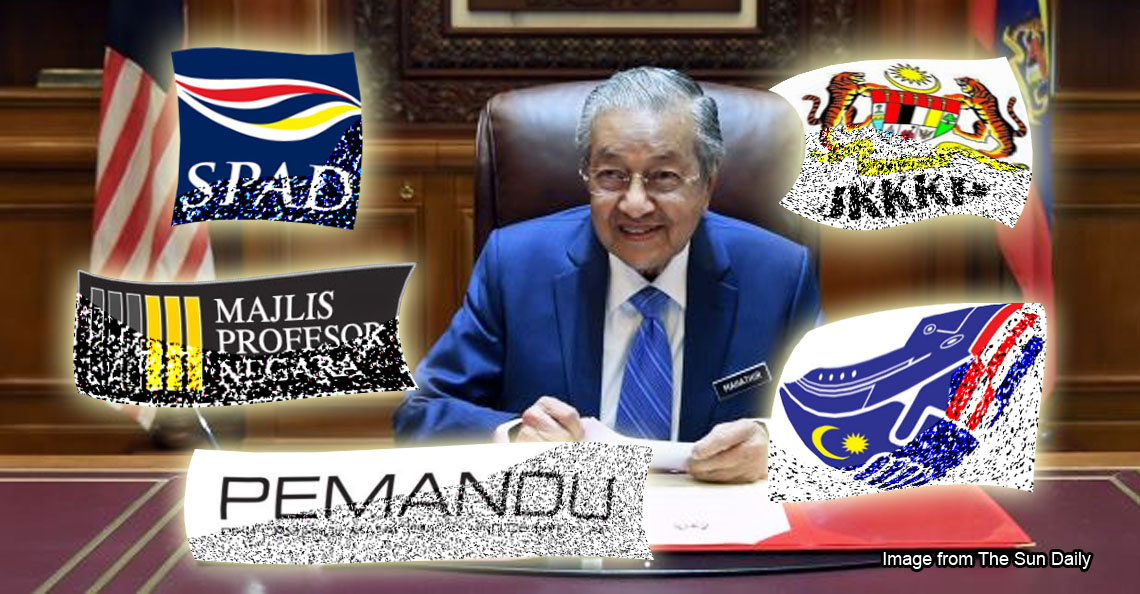
Downsizing govt agencies and reducing the amount of public officials have apparently been touted as ways to reduce corruption before. It’s also been reported that smaller agencies with few personnel reduces the opportunity for them to collect bribes. Centre for A Better Tomorrow (Cenbet) vice-president Datuk Simon Lim Seng Chai meanwhile added that this move would actually free these agencies from any political interference and pressure.
But there is also a possibility that the govt abolished some of these agencies to cut cost to help with our country’s financial situation. This move may seem to work since the budget allocated for PMD in Budget 2019 is RM7.54 billion – a huge drop from what was allocated for PMD in Budget 2018, which was a whopping RM17.43 billion!
At the end of the day, agencies under PMD has been cut to about 70% after all those transformation, leaving only 26 agencies under it.
3. Civil servants can only accept gifts that are… biodegradable?!
No, we’re not actually talking about plastics or the environment but the ‘no gift policy‘ … which isn’t exactly new btw. We include this policy in this list because it now covers not only civil servants but also ministers, deputy ministers and political secretaries, including the Prime Minister himself.
However, there is an exception to this policy.
“If there are gifts, they should only be limited to flowers, food and fruits. Anything else such as cars cannot be given or accepted. The giver and receiver will be in the wrong.” – Dr Mahathir told The Star.
Eh, sure anot can give those things to civil servants and ministers?? After a quick check on MACC’s website, one of the things stated in the no gift policy is that public officials aren’t allowed to take any form of hampers from other people, including those festivities hampers. And you probably know what’s normally inside a hamper: FOOD! So, how leh??

We at CILISOS do not condone the act of bribery but if you genuinely care for any public officials or politicians, then you can probably give food, fruits or flowers unofficially. And if you’re a public official, then you may have to declare whatever gifts you received to your head of department.
But so far, we can assure ugaiz that Dr Mahathir will accept food if you give it to him. Just look at what the SOSCILI boys did!
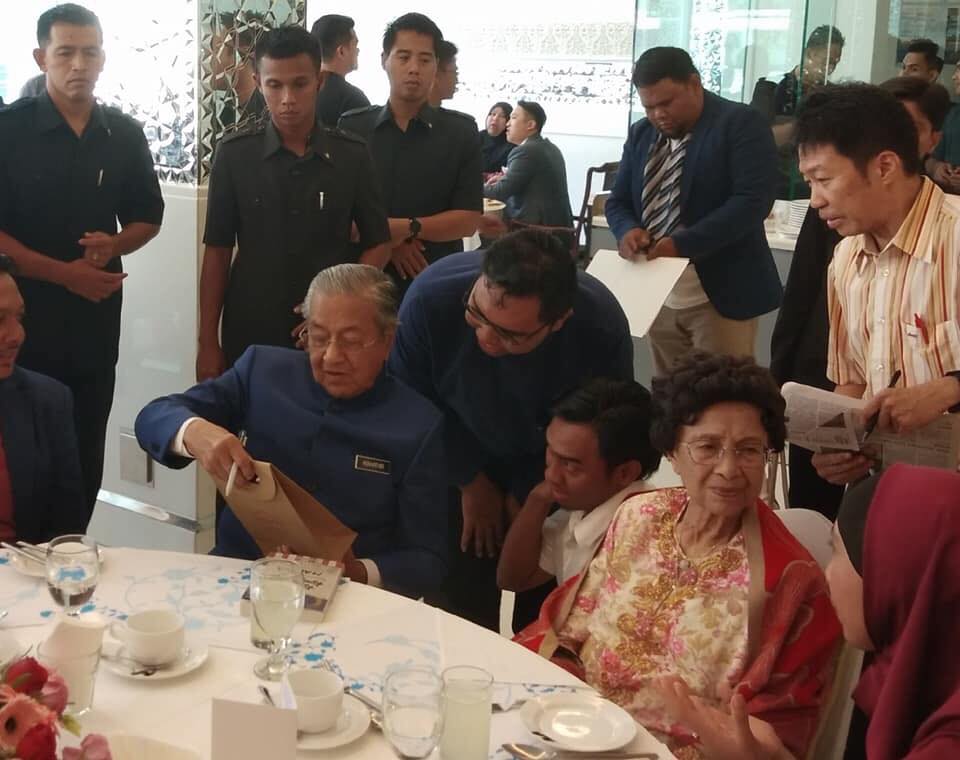
4. Senior govt officers cannot hold more than 5 positions in GLCs
As it turns out, govt officers used to be able to hold not one, not even two, but up to 68 positions in various Govt-Linked Companies (GLCs)! Imagine looking at various GLCs’ website and seeing the same person everywhere.
This is probably why, Dr Mahathir recently announced that senior govt officers can no longer hold more than five positions in GLCs.
“We do not even want to encourage officers to hold two to three more positions, but sometimes it is unavoidable.” Dr Mahathir to The Sun Daily.
Dr Mahathir also added that allowing a person to hold so many positions in various GLCs can cause problems, especially when it comes to contracts awarded by the govt. This is also true if politicians hold top positions in GLCs. So, that is also probably why the govt took a step further to ensure that politicians would not be appointed to head GLCs or foreign missions.
“This also helps to tackle the issue of, for example, during the tenure of the previous Prime Minister Datuk Seri Najib Razak, where he held many positions and it created a lot of problems in terms of check and balance, transparency and accountability.” – Congress of Unions of Employees in the Public and Civil Services president, Datuk Azih Muda added, for NST.
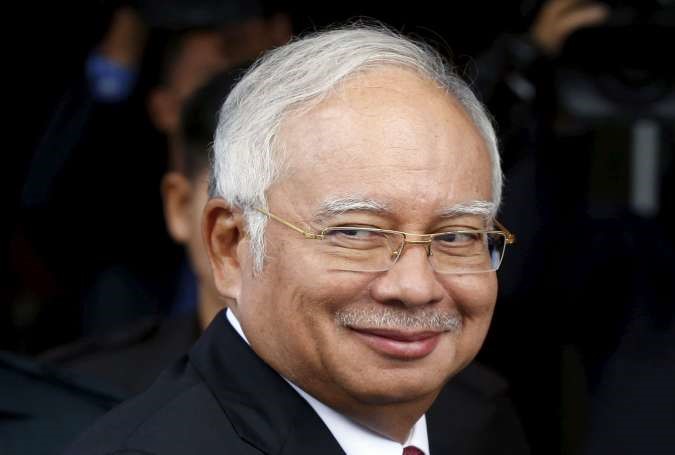
At the time of writing, the Finance Ministry was reportedly preparing a guideline for appointing chairpersons and members of board of directors for GLCs and their subsidiary companies. And just like how recruiters would choose its employees based on their qualifications, the board of directors for GLCs would be chosen among professionals who are actually qualified for the job.
Chup, what about that time where Parti Pribumi Bersatu Malaysia’s (PPBM) supreme council member, Akhramsyah Muammar Ubaidah was appointed as Mara’s chairman? That may be an exception because, according to Economic Affairs Minister Datuk Seri Azmin Ali, if politicians have the requirement to fill in top GLC posts, then they can hold that posts.
Speaking of PPBM…
5. Ministers cannot give out support letters to grant a project
Remember sometime in December 2018 when PPBM vice-president, Abdul Rashid Abdul Rahman had called the govt to help the party by awarding govt projects to its chief divisions? Apparently, he made that statement because he believed that the party should do whatever it could to defend its position as the governing party. However, PPBM’s Youth Chief Syed Saddiq and Hannah Yeoh disagreed with Abdul Rashid’s statement.
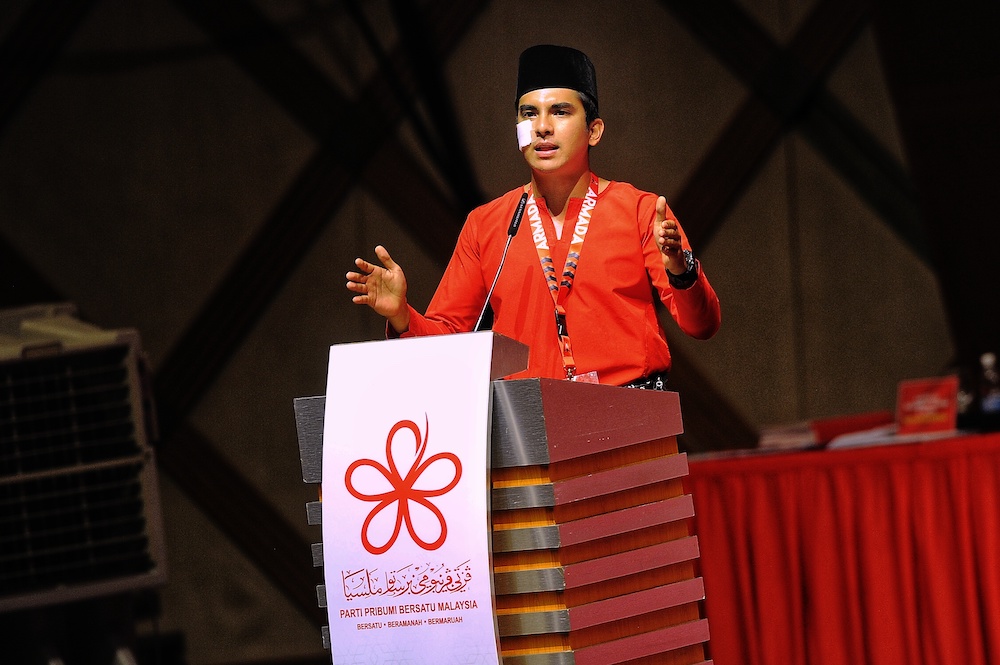
'Stupid' to repeat mistake made by the former government. 'Wise' to remember voters are 'smart' today. https://t.co/6o6RVexOmK
— Hannah Yeoh (@hannahyeoh) December 30, 2018
Besides that incident, sometime in June last year, another PPBM youth leader, who isn’t Syed Saddiq, had allegedly used his political connections to secure 80 stalls at Jalan Masjid India and then renting them out for up to RM5,000 per stall. He allegedly profited about RM400,000 from it.
With that being said, the govt would now only be awarding govt projects via open tender. This is to ensure transparency in the usage of public funds and to avoid cronyism.
And that’s not all. The govt also took a step further by not allowing ministers and deputy ministers to issue support letters for any tender or proposals that would be submitted to the govt, especially when it involves money. Apparently, this has been a practice in the previous govt.
“Usually, Members of Parliament and the State Legislative Assembly feel that it is their responsibility (to issue support letters) as they know their constituents better.” – Education Minister Maszlee Malik for NST.
He also added that although issuing support letters is discouraged, it can be an exception when it comes to critical issues like health or any urgent matters. However, this would only mean that those letter would be considered by the govt.
6. You can now check how much assets Ministers have on this website
According to the findings of 2017 Global Corruption Barometer (GCB) – Asia Pacific Region, 63% of corruption complaints involved the public sector. This is probably why one of the first things that Harapan did when it took over the govt was to make all its ministers, including the Prime Minister himself, to declare their assets.
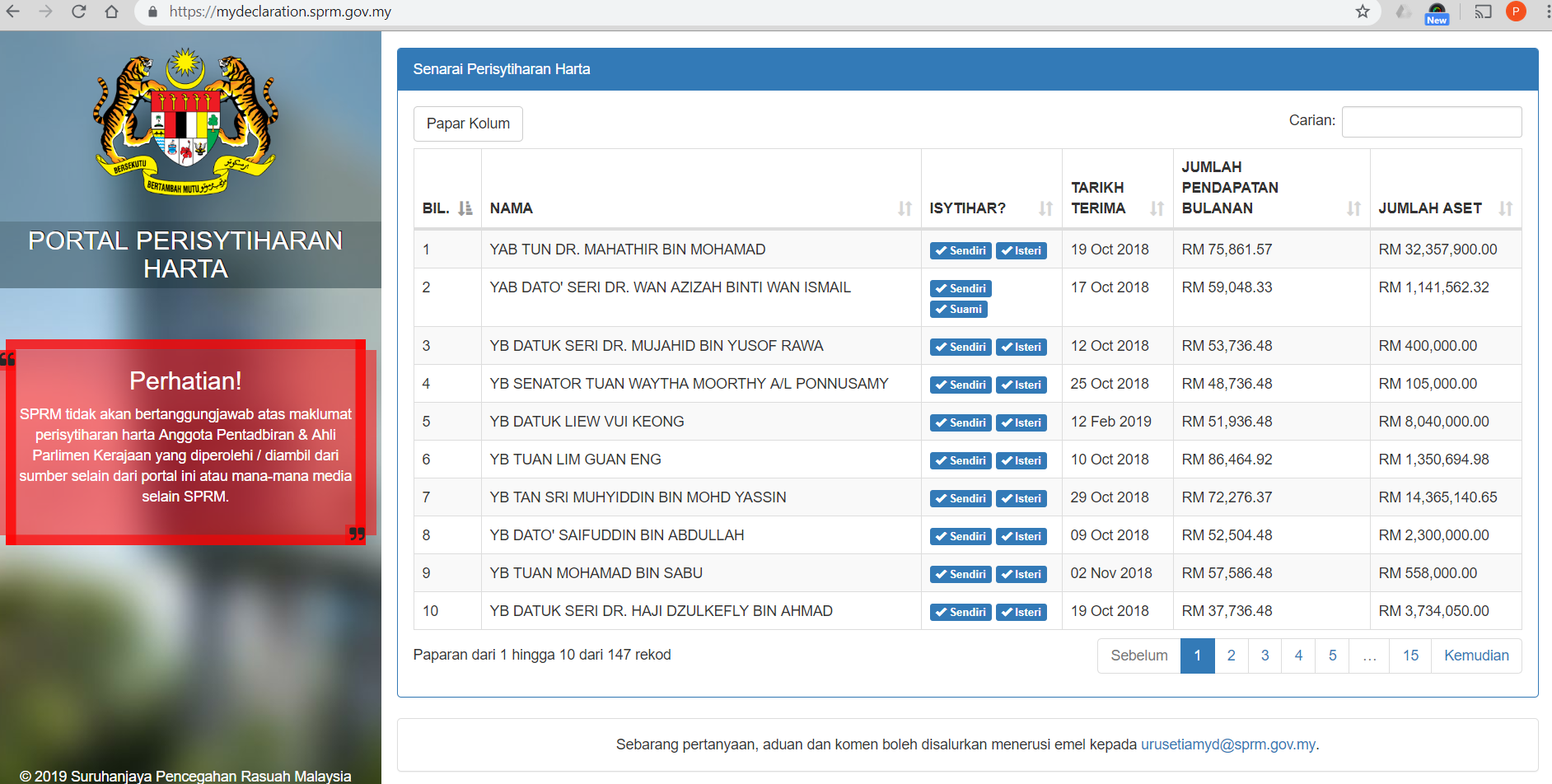
The World Bank stated that asset declaration among public officials is a powerful tool to prevent corruption as it helps lower levels of perceived corruption, especially in democratic countries. In fact, more than 150 countries have been using this method to curb corruption. But not everyone wants to tell the whole world how much they earn and the assets they have as it has been deemed by some to be a breach of privacy.
In fact, one local council member in Poland actually refused to submit his asset declaration, claiming that it was a breach to his privacy. Although the court in Poland found that his claims were true, it also stated that the act of declaring assets by public officials could be justified as the public has its rights to a transparent govt.
At the time of writing, more than 90% of Members of Parliament and govt administrative members respectively have declared their assets. And, according to MACC, they are required to declare their assets whenever they buy or dispose any assets and whenever the govt requires them to do so. You can find more about their assets here.
Having said that…
Malaysia’s corruption index has improved (but only a little bit la)
We mentioned in the intro that Malaysia has been known for corruption lately. In fact, Malaysia’s rank in the Corruption Perception Index (CPI) had dropped from 55 in 2016 to 62 in 2017. And just FYI, the lower your rank, the more corrupted your country is. The good news though is that we improved in 2018!…. well by one spot up only la in CPI. Although it might not seem like a great achievement, at least got improvement la. You can refer to the map below for a better picture.
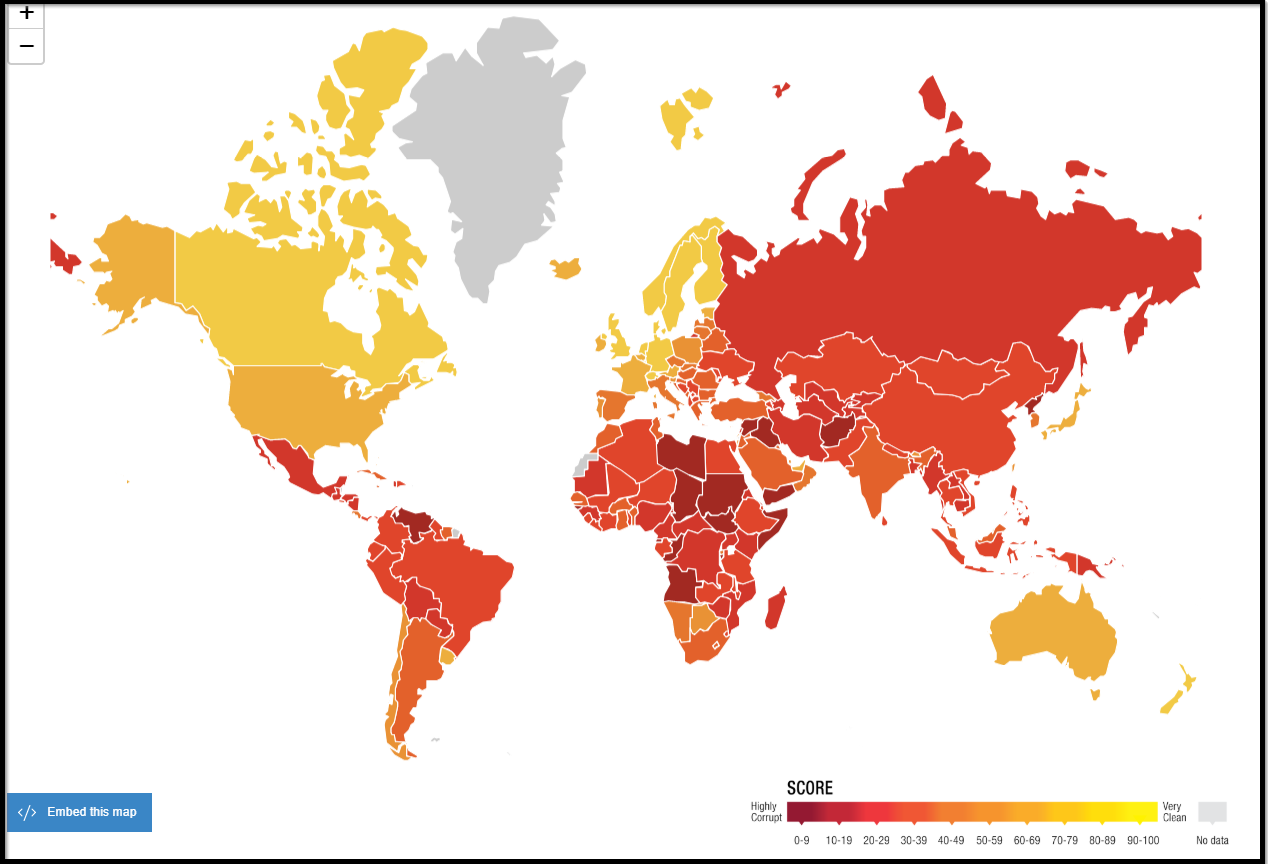
On top of that, the govt has recently launched the five-year National Anti-Corruption Plan (NACP) with 115 initiatives to curb corruption. While some of these initiatives have either been implemented, including those mentioned earlier, or yet to be implemented, some of them are actually already in progress. For instance, the govt would be tabling a Political Funding Act that would monitor the usage of political money in June. You can read more about the initiatives here (psst, go straight to page 36) or there’s a simplified version of them by The Edge here.
Despite the laws and initiatives that Malaysia implements that might be similar to Singapore’s, our country is still far behind Singapore in CPI. How da heck did Singapore, which ranked 3rd in CPI, managed to keep its corruption at a low level?? Must be their kiasuness.
Apparently, the govt is strict in enforcing anti-corruption rules to ALL Singaporeans regardless of their status. So, you can be a commoner, foreigner or even a diplomat, for all that matters, yet you’re still punishable by law if you give or receive bribery.
Besides that, the govt itself is pretty effective to the extent that most Singaporeans may not even have to think about bribing the officers.
“We have over time developed a society and culture that eschews corruption. Singaporeans expect and demand a clean system. They do not condone giving or accepting “social lubricants” to get things done. They readily report corrupt practices when they encounter them. Singaporeans trust that the law applies to all and that the Government will enforce the laws without fear or favour, even when it may be awkward or embarrassing.” – Singapore’s Prime Minister Lee Hsien Loong to Straits Times.
Having said that, is there a possibility that Malaysia might end up like Singapore? At the time of writing, the govt is still working on implementing the initiatives listed in NACP. And looking at the long list of things that Malaysia needs to do, it may take a while before our country gets to reach to that level in reducing corruption in the country.
- 2.3KShares
- Facebook2.2K
- Twitter7
- LinkedIn8
- Email15
- WhatsApp37

